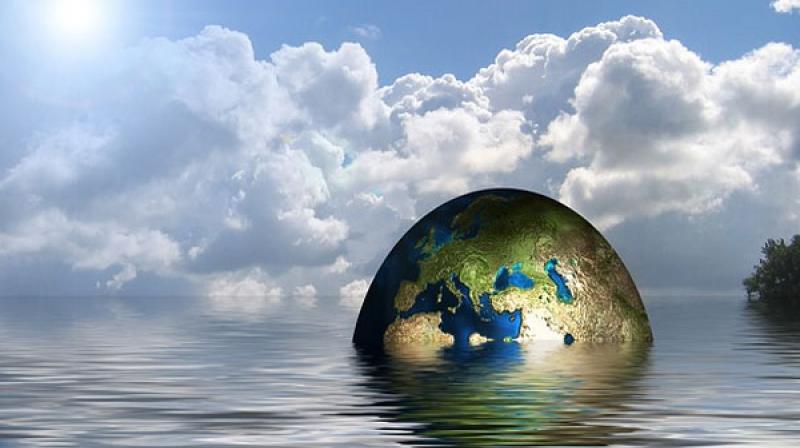So, let's talk green: I've said it a 100 times!

‘If you miss the train I’m on, You will know that I am gone, You can hear the whistle blow, A hundred miles’, Peter, Paul & Mary. From their song 500 miles.
I am in a reminiscing mood to look back at life over the last couple of years. The reflective mood is because, this is my 100th article for this column. As I started the rear-view-mirror session, ‘The Global Climate Risk Index 2017’ (CRI) report was released last week by Germanwatch, an independent Berlin-based development and environmental organisation. The report analyses extent to which countries have been affected by the impacts of weather-related events in the past.
The past is meant to teach us how to deal with the future. Since the industrial revolution, we have been burning fossil fuels and releasing carbon into the atmosphere, which has caused global warming and the resulting climate change, leading to extreme weather events like storms, floods, landslides, droughts, heat waves. This has resulted in loss of human lives and huge economic losses. The CRI report has quantified the extent of the loses.
India is the sixth most vulnerable country, in the world in terms of facing extreme weather events with Haiti, Zimbabwe, Fiji, Sri Lanka and Vietnam taking top five positions in the list of nations facing climate risk. India faced several types of extreme weather events in 2015. After floods in February and March due to unseasonal rainfall, it suffered from one of the deadliest heatwaves in world history killing more than 2,300 people in May, followed by a much weaker monsoon than normal. Further floods in August and especially in Chennai in December had enormous consequences. In 2015, India lost the maximum number of human lives - 4317.
Heavy rainfalls due to the intensified monsoon in South Eastern Africa which started in December 2014 and continued throughout January and beyond had disastrous consequences. Mozambique, Malawi and Madagascar were the countries hardest hit by the floods resulting from the torrential rainfalls. In Mozambique the number of affected people was greater than 325,000, 163 people were killed. In Malawi around 638,000 have been affected with more than 170,000 displaced. The floods also fostered the outbreak of diseases, e.g. cholera in some regions. In Northern Madagascar, the tropical storms Chedza on January 16, 2015 and Fundi on February 6 and 7, 2015 worsened the floods and the already tense situation, while drought persisted in the south. Tropical storm Erika came upon Dominica on August 27, 2015 impacting large parts of the island’s infrastructure especially in the transport sector. According to some sources, the economic damages amount to around 90% of the country’s GDP.
Severe monsoon rains resulting in floods and landslides in Myanmar since June 2015 left thousands of people displaced and caused extensive agricultural damage with Cyclone Komen bringing additional destruction at the end of July, affecting nearly one million people. The small island state Vanuatu was hit by the category 5 tropical Cyclone Pam on March 13, 2015 which destroyed the majority of food crops and affected more than two thirds of the state’s population.
Category 4 Hurricane Joaquin temporarily suspended and/or destroyed large parts of transport, housing and communication infrastructure in some parts of the Bahamas for several days starting on September 29, 2015. Ghana was also affected by heavy floods which led to the destruction of a fuel station and a total number of more than 200 people being killed in the region Greater Accra at the beginning of June 2015. Exceptional rainfalls also occurred in the northern part of the Atacama Region in Chile at the end of March 2015. Although comparably low amounts of rain with maximums of around 60mm fell, the desert soil in one of the driest regions on earth could not absorb the water masses, leading to flash floods. At least 31 people died.The data of past 20 years (1997-2016), found that the world had lost lives of 524,000 people and suffered financial losses to the tune of $3.16 trillion as a direct result of more than 11,000 extreme weather events during the period.
A Peter, Paul & Mary said in their song, we can hear the whistle blow a hundred miles away, telling us that we need to learn from the past as we go into the future. This is what I have been saying a 100 times in my articles here. So here I am, saying it for the 100th time - let’s all be more aware and contribute our bit to reduce the effects of global warming and climate change, so that we leave behind a better planet for the next generations.

